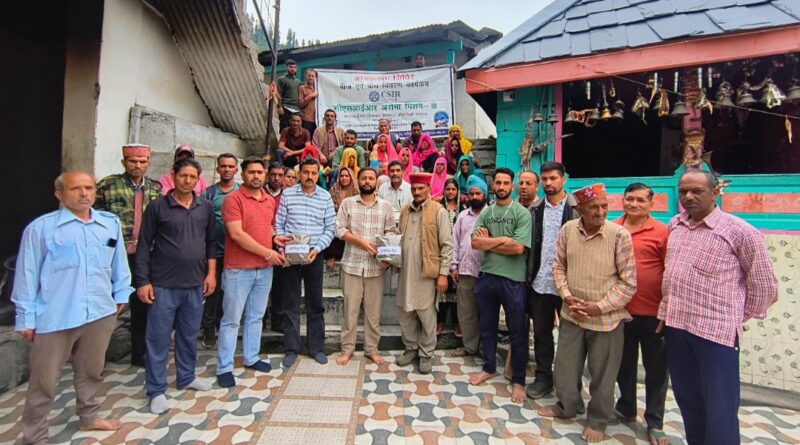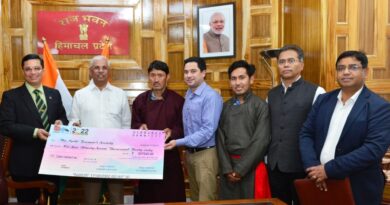Empowering Tribal Farmers: Himachal’s Green Push with Medicinal and Aromatic Plants
In a meaningful step toward sustainable farming and tribal empowerment, the CSIR-Institute of Himalayan Bioresource Technology (CSIR-IHBT), Palampur, recently conducted a series of hands-on training and awareness programs across Himachal Pradesh’s tribal regions. Held from June 16 to 20 under the CSIR Aroma Mission Phase III, the initiative focused on cultivating medicinal and aromatic plants (MAPs) to boost rural livelihoods and promote eco-friendly agriculture.
The journey began in Samra village, Bharmour (Chamba district), where 40 farmers—25 men and 15 women—received practical training on MAP cultivation, post-harvest techniques, and market connections. Seeds and planting materials were distributed to help them get started immediately.
The next stop was Suppa village on June 17, where farmers learned to grow aromatic marigold (Tagetes minuta) and other regionally suited crops. The session emphasized field-level techniques and value addition to improve both yield and income.
On June 19, the program reached Kullu district, engaging tribal farmers from Lahaul & Spiti. Experts shared insights tailored to cold desert farming conditions and provided region-specific seeds and technical support.
Finally, on June 20, Sungra village in Kinnaur hosted a session focused on the entrepreneurial potential of MAPs. Thirty farmers participated, gaining knowledge on sustainable cultivation and how to tap into value chains for long-term economic resilience.
Led by Dr. Sudesh Kumar Yadav and Dr. Rakesh Kumar, the initiative reflects CSIR-IHBT’s commitment to transforming tribal agriculture through science, innovation, and community engagement. By equipping farmers with the tools and knowledge they need, the mission is helping build a greener, more prosperous future in Himachal’s remote regions.



